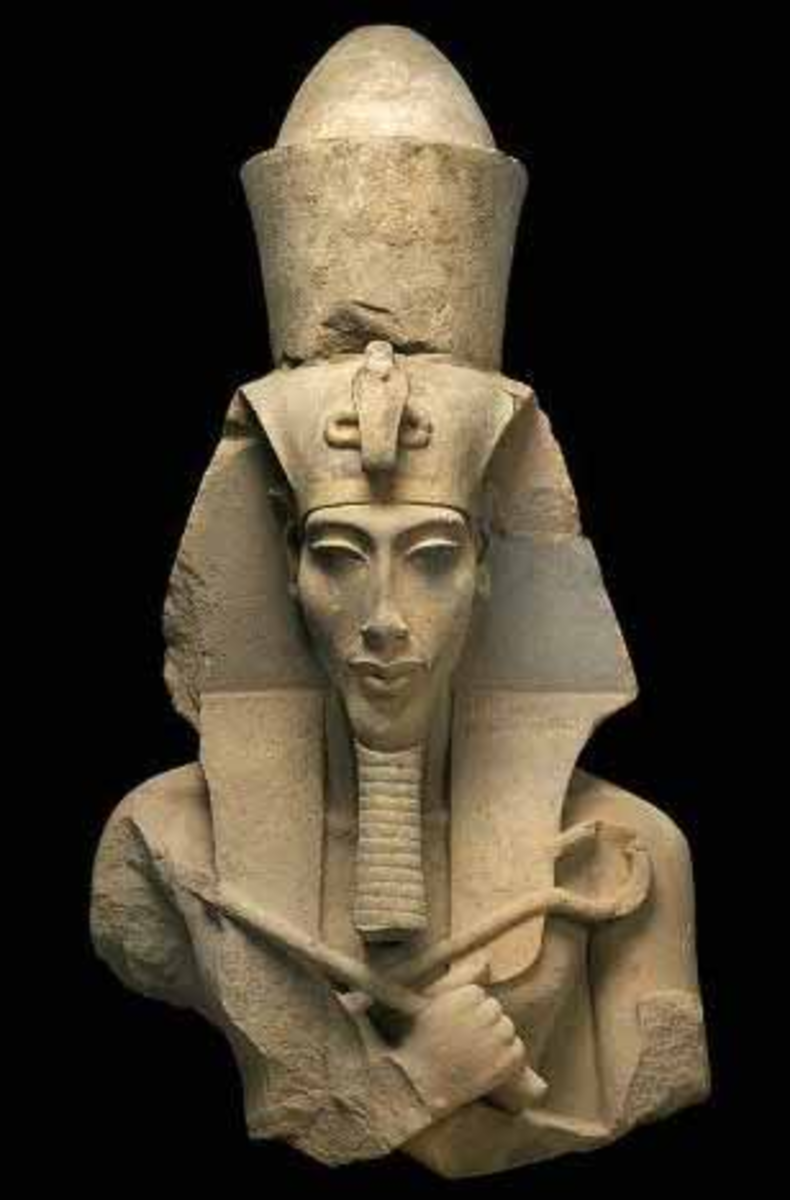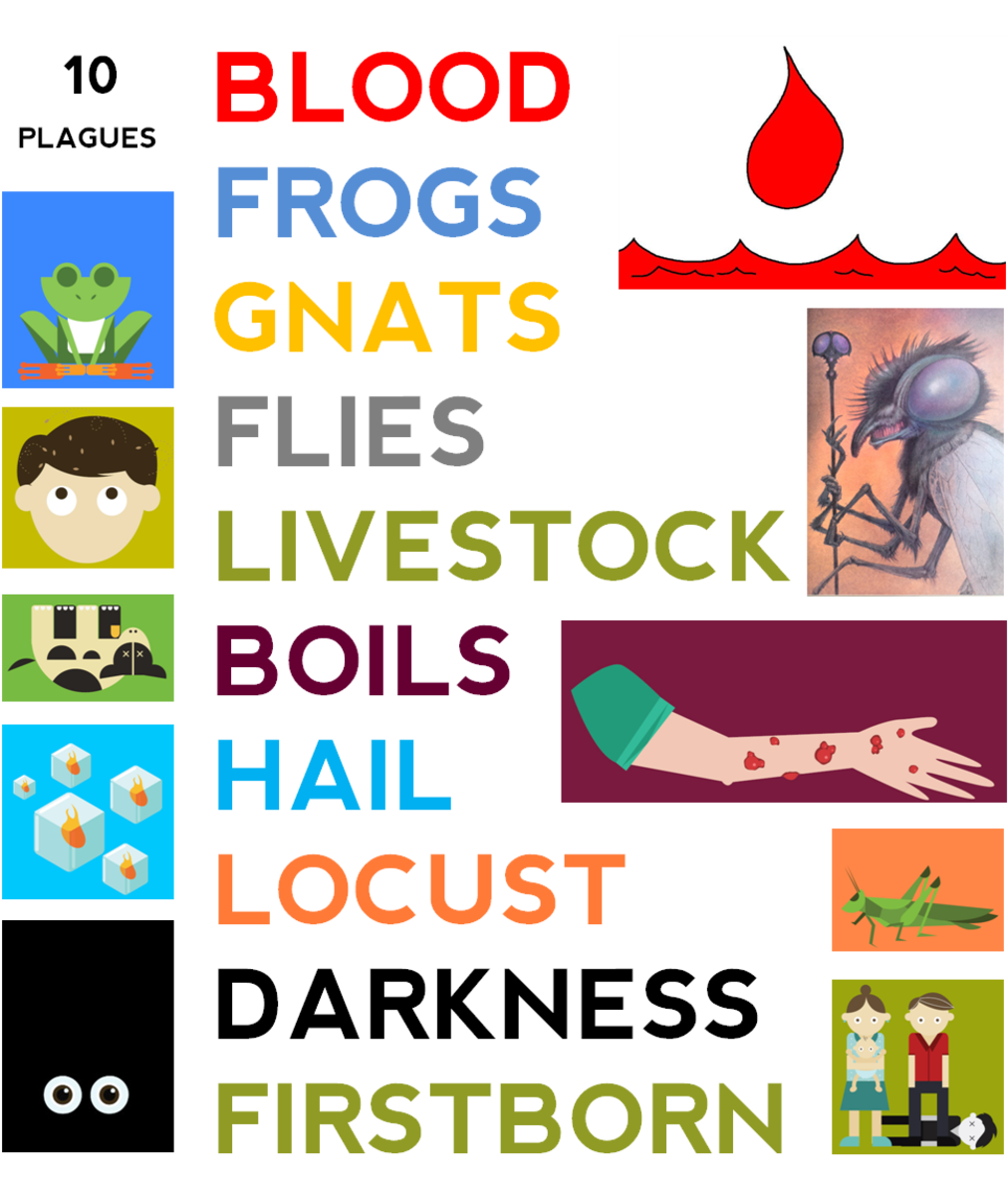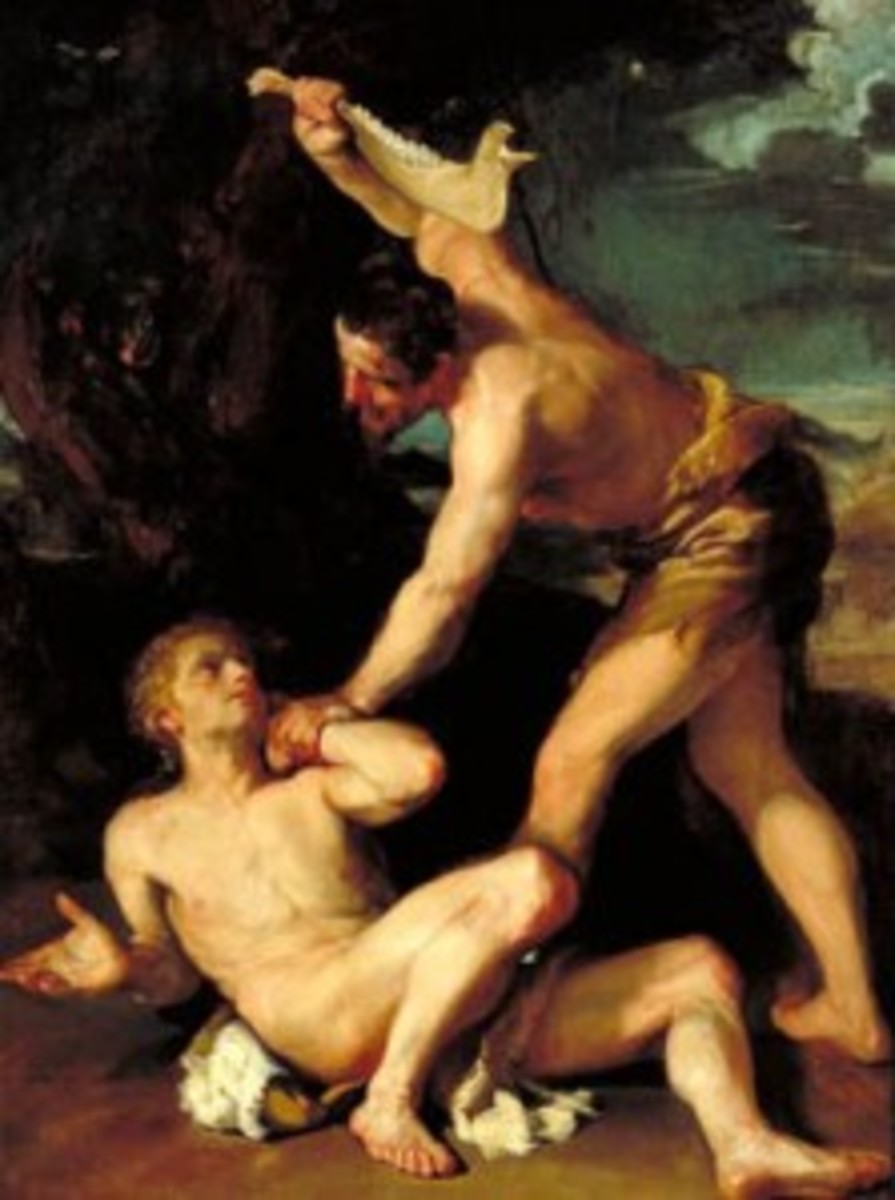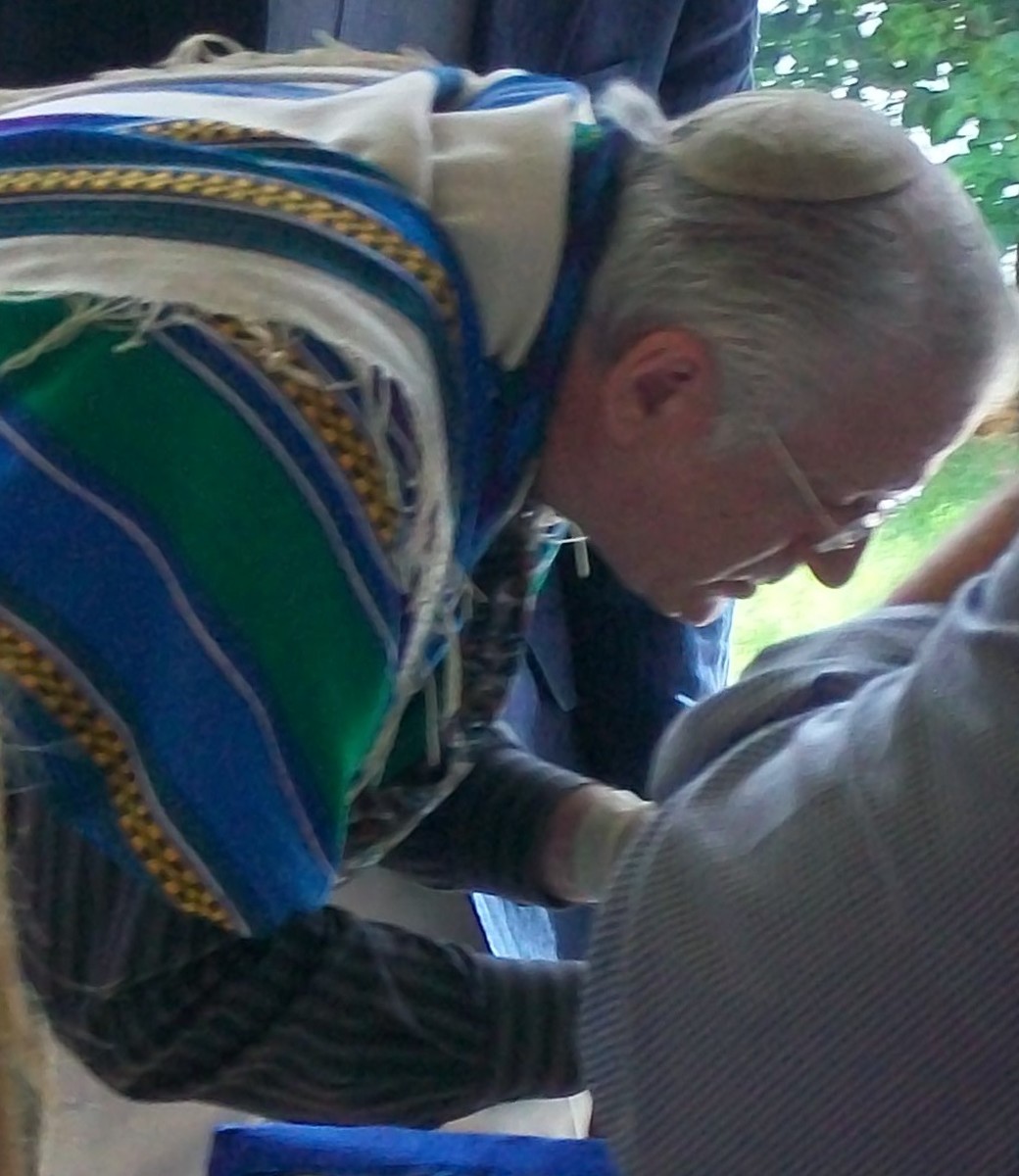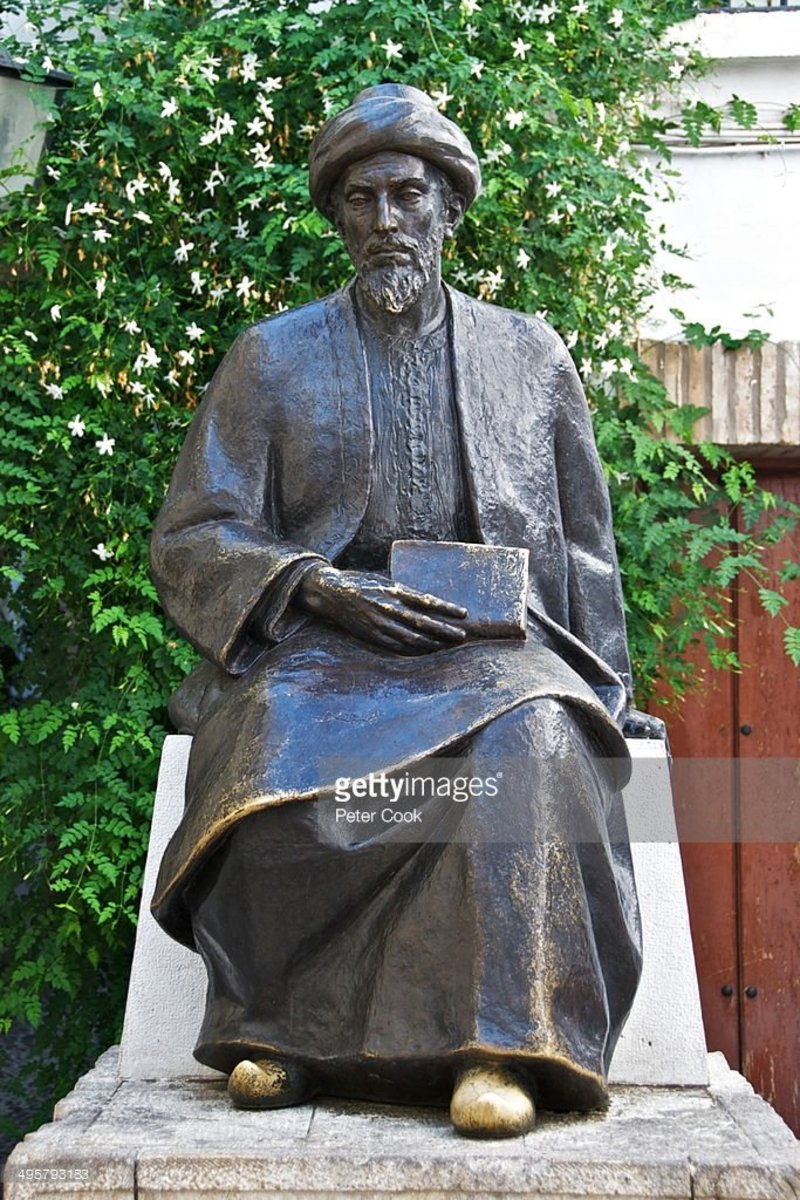What you intended to harm me, but God intended it for good
Stay focused on God

God is in control of our every situation, stay focused on God
You intended to harm me, but God intended it for good to accomplish what is now being done, the saving of many lives. Genesis 50:20
These words of Joseph took my attention. When we look at the background, we will understand why Joseph is saying like this. Many times it may happen to you and me. Things and situation which are against our hope will change dramatically to our favor.
Jacob loved Joseph more than any of his other sons because he had been born to him in his old age; he made a richly ornamented robe for him. When his brothers saw that their father loved him more than any of them, they hated him and could not speak a kind word to him. We were binding sheaves of grain out in the field when suddenly my sheaf rose and stood upright, while your sheaves gathered around mine and bowed down to it." Joseph had a dream, and when he told it to his brothers, they hated him all the more. He said to them, "Listen to this dream I had: His brothers said to him, "Do you intend to reign over us? Will you actually rule us?" And they hated him all the more because of his dream and what he had said. Then he had another dream, and he told it to his brothers. "Listen," he said, "I had another dream, and this time the sun and moon and eleven stars were bowing down to me."
Now his brothers had gone to graze their father's flocks near Shechem, and Israel said to Joseph, "As you know, your brothers are grazing the flocks near Shechem. Come, I am going to send you to them."
"Very well," he replied.
So he said to him, "Go and see if all is well with your brothers and with the flocks, and bring word back to me." Then he sent him off from the Valley of Hebron.
When Joseph arrived at Shechem, a man found him wandering around in the fields and asked him, "What are you looking for?"
He replied, "I'm looking for my brothers. Can you tell me where they are grazing their flocks?"
"They have moved on from here," the man answered. "I heard them say, 'Let's go to Dothan.' "
So Joseph went after his brothers and found them near Dothan. But they saw him in the distance, and before he reached them, they plotted to kill him.
"Here comes that dreamer!" they said to each other. "Come now, let's kill him and throw him into one of these cisterns and say that a ferocious animal devoured him. Then we'll see what comes of his dreams."
When Reuben heard this, he tried to rescue him from their hands. "Let's not take his life," he said. "Don't shed any blood. Throw him into this cistern here in the desert, but don't lay a hand on him." Reuben said this to rescue him from them and take him back to his father.
So when Joseph came to his brothers, they stripped him of his robe—the richly ornamented robe he was wearing- and they took him and threw him into the cistern. Now the cistern was empty; there was no water in it.
As they sat down to eat their meal, they looked up and saw a caravan of Ishmaelites coming from Gilead. Their camels were loaded with spices, balm and myrrh, and they were on their way to take them down to Egypt.
Judah said to his brothers, "What will we gain if we kill our brother and cover up his blood? Come, let's sell him to the Ishmaelites and not lay our hands on him; after all, he is our brother, our own flesh and blood." His brothers agreed.
So when the Midianite merchants came by, his brothers pulled Joseph up out of the cistern and sold him for twenty shekels of silver to the Ishmaelites, who took him to Egypt.
When Reuben returned to the cistern and saw that Joseph was not there, he tore his clothes. He went back to his brothers and said, "The boy isn't there! Where can I turn now?"
Then they got Joseph's robe, slaughtered a goat and dipped the robe in the blood. They took the ornamented robe back to their father and said, "We found this. Examine it to see whether it is your son's robe."
He recognized it and said, "It is my son's robe! Some ferocious animal has devoured him. Joseph has surely been torn to pieces."
Then Jacob tore his clothes, put on sackcloth and mourned for his son many days. All his sons and daughters came to comfort him, but he refused to be comforted. "No," he said, "in mourning will I go down to the grave ] to my son." So his father wept for him.
Meanwhile, the Midianites sold Joseph in Egypt to Potiphar, one of Pharaoh's officials, the captain of the guard.
Now Joseph had been taken down to Egypt. Potiphar, an Egyptian who was one of Pharaoh's officials, the captain of the guard, bought him from the Ishmaelites who had taken him there.
The LORD was with Joseph and he prospered, and he lived in the house of his Egyptian master. When his master saw that the LORD was with him and that the LORD gave him success in everything he did, Joseph found favor in his eyes and became his attendant. Potiphar put him in charge of his household, and he entrusted to his care everything he owned. From the time he put him in charge of his household and of all that he owned, the LORD blessed the household of the Egyptian because of Joseph. The blessing of the LORD was on everything Potiphar had, both in the house and in the field. So he left in Joseph's care everything he had; with Joseph in charge, he did not concern himself with anything except the food he ate.
Now Joseph was well-built and handsome, and after a while, his master's wife took notice of Joseph and said, "Come to bed with me!"
But he refused. "With me in charge," he told her, "my master does not concern himself with anything in the house; everything he owns he has entrusted to my care. No one is greater in this house than I am. My master has withheld nothing from me except you because you are his wife. How then could I do such a wicked thing and sin against God?" And though she spoke to Joseph day after day, he refused to go to bed with her or even be with her.
One day he went into the house to attend to his duties, and none of the household servants was inside. She caught him by his cloak and said, "Come to bed with me!" But he left his cloak in her hand and ran out of the house.
When she saw that he had left his cloak in her hand and had run out of the house, she called her household servants. "Look," she said to them, "this Hebrew has been brought to us to make sport of us! He came in here to sleep with me, but I screamed. When he heard me scream for help, he left his cloak beside me and ran out of the house."
She kept his cloak beside her until his master came home. Then she told him this story: "That Hebrew slave you brought us came to me to make sport of me. But as soon as I screamed for help, he left his cloak beside me and ran out of the house."
When his master heard the story his wife told him, saying, "This is how your slave treated me," he burned with anger. Joseph's master took him and put him in prison, the place where the king's prisoners were confined.
But while Joseph was there in the prison, the LORD was with him; he showed him kindness and granted him favor in the eyes of the prison warden. So the warden put Joseph in charge of all those held in the prison, and he was made responsible for all that was done there. The warden paid no attention to anything under Joseph's care, because the LORD was with Joseph and gave him success in whatever he did.
Sometime later, the cupbearer and the baker of the king of Egypt offended their master, the king of Egypt. Pharaoh was angry with his two officials, the chief cupbearer and the chief baker, and put them in custody in the house of the captain of the guard, in the same prison where Joseph was confined. The captain of the guard assigned them to Joseph, and he attended them.
After they had been in custody for some time, each of the two men—the cupbearer and the baker of the king of Egypt, who were being held in prison—had a dream the same night, and each dream had a meaning of its own.
When Joseph came to them the next morning, he saw that they were dejected. So he asked Pharaoh's officials who were in custody with him in his master's house, "Why are your faces so sad today?"
"We both had dreams," they answered, "but there is no one to interpret them."
Then Joseph said to them, "Do not interpretations belong to God? Tell me your dreams."
So the chief cupbearer told Joseph his dream. He said to him, "In my dream, I saw a vine in front of me, and on the vine were three branches. As soon as it budded, it blossomed, and its clusters ripened into grapes. Pharaoh's cup was in my hand, and I took the grapes, squeezed them into Pharaoh's cup and put the cup in his hand."
"This is what it means," Joseph said to him. "The three branches are three days. Within three days Pharaoh will lift up your head and restore you to your position, and you will put Pharaoh's cup in his hand, just as you used to do when you were his cupbearer. But when all goes well with you, remember me and show me kindness; mention me to Pharaoh and get me out of this prison. For I was forcibly carried off from the land of the Hebrews, and even here I have done nothing to deserve being put in a dungeon."
When the chief baker saw that Joseph had given a favorable interpretation, he said to Joseph, "I too had a dream: On my head were three baskets of bread. In the top basket were all kinds of baked goods for Pharaoh, but the birds were eating them out of the basket on my head."
"This is what it means," Joseph said. "The three baskets are three days. Within three days Pharaoh will lift off your head and hang you on a tree. And the birds will eat away your flesh."
Now the third day was Pharaoh's birthday, and he gave a feast for all his officials. He lifted up the heads of the chief cupbearer and the chief baker in the presence of his officials: He restored the chief cupbearer to his position, so that he once again put the cup into Pharaoh's hand, but he hanged the chief baker, just as Joseph had said to them in his interpretation.
The chief cupbearer, however, did not remember Joseph; he forgot him.
When two full years had passed, Pharaoh had a dream: He was standing by the Nile, when out of the river there came up seven cows, sleek and fat, and they grazed among the reeds. After them, seven other cows, ugly and gaunt, came up out of the Nile and stood beside those on the riverbank. And the cows that were ugly and gaunt ate up the seven sleek, fat cows. Then Pharaoh woke up.
He fell asleep again and had a second dream: Seven heads of grain, healthy and good, were growing on a single stalk. After them, seven other heads of grain sprouted—thin and scorched by the east wind. The thin heads of grain swallowed up the seven healthy, full heads. Then Pharaoh woke up; it had been a dream.
In the morning his mind was troubled, so he sent for all the magicians and wise men of Egypt. Pharaoh told them his dreams, but no one could interpret them for him.
Then the chief cupbearer said to Pharaoh, "Today I am reminded of my shortcomings. Pharaoh was once angry with his servants, and he imprisoned me and the chief baker in the house of the captain of the guard. Each of us had a dream the same night, and each dream had a meaning of its own. Now a young Hebrew was there with us, a servant of the captain of the guard. We told him our dreams, and he interpreted them for us, giving each man the interpretation of his dream. And things turned out exactly as he interpreted them to us: I was restored to my position, and the other man was hanged."
So Pharaoh sent for Joseph, and he was quickly brought from the dungeon. When he had shaved and changed his clothes, he came before Pharaoh.
Pharaoh said to Joseph, "I had a dream, and no one can interpret it. But I have heard it said of you that when you hear a dream you can interpret it."
"I cannot do it," Joseph replied to Pharaoh, "but God will give Pharaoh the answer he desires."
Then Pharaoh said to Joseph, "In my dream, I was standing on the bank of the Nile, when out of the river there came up seven cows, fat and sleek, and they grazed among the reeds. After them, seven other cows came up—scrawny and very ugly and lean. I had never seen such ugly cows in all the land of Egypt. The lean, ugly cows ate up the seven fat cows that came up first. But even after they ate them, no one could tell that they had done so; they looked just as ugly as before. Then I woke up.
"In my dreams I also saw seven heads of grain, full and good, growing on a single stalk. After them, seven other heads sprouted—withered and thin and scorched by the east wind. The thin heads of grain swallowed up the seven good heads. I told this to the magicians, but none could explain it to me."
Then Joseph said to Pharaoh, "The dreams of Pharaoh are one and the same. God has revealed to Pharaoh what he is about to do. The seven good cows are seven years, and the seven good heads of grain are seven years; it is one and the same dream. The seven lean, ugly cows that came up afterward are seven years, and so are the seven worthless heads of grain scorched by the east wind: They are seven years of famine.
"It is just as I said to Pharaoh: God has shown Pharaoh what he is about to do. Seven years of great abundance are coming throughout the land of Egypt, but seven years of famine will follow them. Then all the abundance in Egypt will be forgotten, and the famine will ravage the land. The abundance in the land will not be remembered, because the famine that follows it will be so severe. The reason the dream was given to Pharaoh in two forms is that the matter has been firmly decided by God, and God will do it soon.
"And now let Pharaoh look for a discerning and wise man and put him in charge of the land of Egypt. Let Pharaoh appoint commissioners over the land to take a fifth of the harvest of Egypt during the seven years of abundance. They should collect all the food of these good years that are coming and store up the grain under the authority of Pharaoh, to be kept in the cities for food. This food should be held in reserve for the country, to be used during the seven years of famine that will come upon Egypt, so that the country may not be ruined by the famine."
The plan seemed good to Pharaoh and to all his officials. So Pharaoh asked them, "Can we find anyone like this man, one in whom is the spirit of God ?"
Then Pharaoh said to Joseph, "Since God has made all this known to you, there is no one so discerning and wise as you. You shall be in charge of my palace, and all my people are to submit to your orders. Only with respect to the throne will I be greater than you."
So Pharaoh said to Joseph, "I hereby put you in charge of the whole land of Egypt." Then Pharaoh took his signet ring from his finger and put it on Joseph's finger. He dressed him in robes of fine linen and put a gold chain around his neck. He had him ride in a chariot as his second-in-command, and men shouted before him, "Make way!" Thus he put him in charge of the whole land of Egypt.
When Jacob learned that there was grain in Egypt, he said to his sons, "Why do you just keep looking at each other?" He continued, "I have heard that there is grain in Egypt. Go down there and buy some for us, so that we may live and not die."
Then ten of Joseph's brothers went down to buy grain from Egypt. Then they met Joseph whom they sold to Midianite merchants. Then Joseph brought his father Jacob and lived happily.
When Joseph's brothers saw that their father was dead, they said, "What if Joseph holds a grudge against us and pays us back for all the wrongs we did to him?" So they sent word to Joseph, saying, "Your father left these instructions before he died: 'This is what you are to say to Joseph: I ask you to forgive your brothers the sins and the wrongs they committed in treating you so badly.' Now please forgive the sins of the servants of the God of your father." When their message came to him, Joseph wept.
His brothers then came and threw themselves down before him. "We are your slaves," they said.
But Joseph said to them, "Don't be afraid. Am I in the place of God? You intended to harm me, but God intended it for good to accomplish what is now being done, the saving of many lives. So then, don't be afraid. I will provide for you and your children." And he reassured them and spoke kindly to them.
Now you understand how God worked out bad thing in the life of Joseph turned in to a good thing. Also, you have noted how Joseph behaved with his cruel brothers who put him in a dry well then sold to Midianite Marchents.
Whatever comes in our life eventually turns into good for us. Let us have the hear of Joseph.

